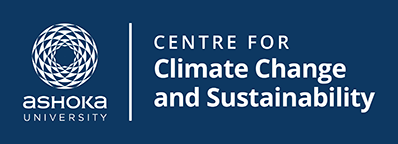Healing Earth conference 2022
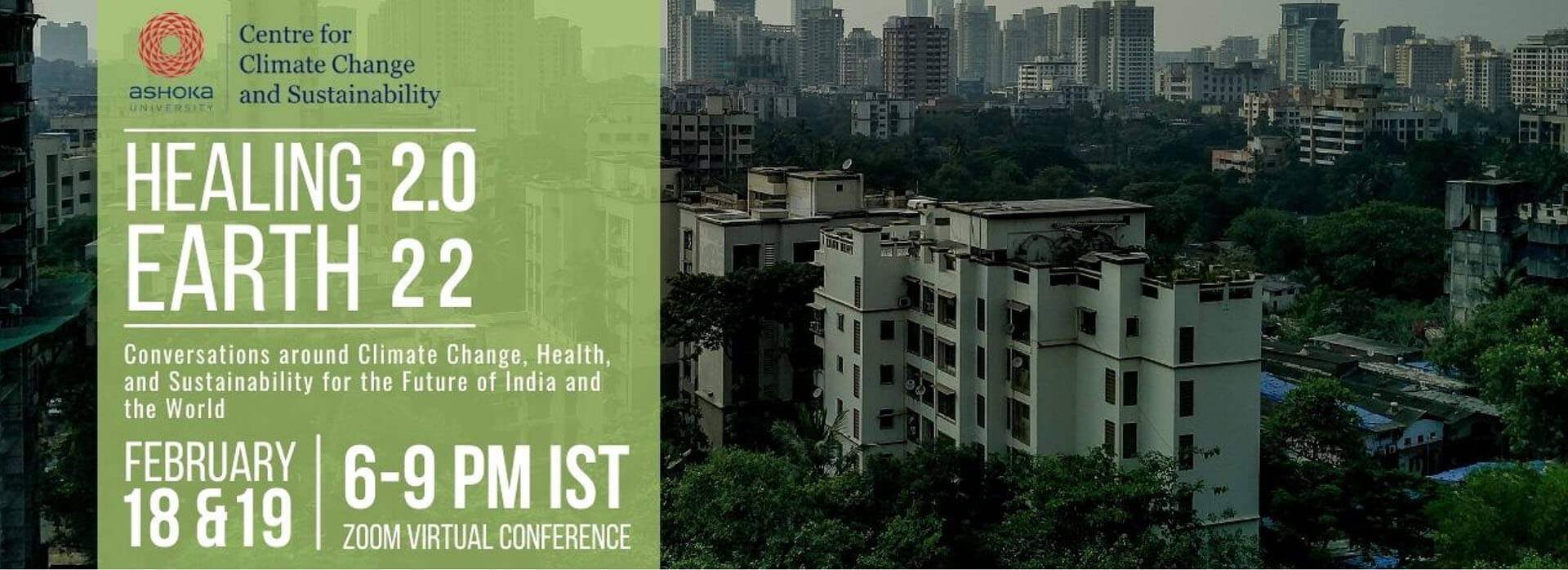
Healing Earth conference 2022
The Healing Earth conference is a flagship annual conference organised by the Centre for Climate Change and Sustainability (3CS) to facilitate conversations around the effects of the climate crisis and its wider impact on our world today.
Launched in 2021, the conference aims to bring together researchers, practitioners, and faculty to explore the links, trade-offs, and tensions at the nexus of climate change, health, and ecosystems.
Featuring speakers from academia and non-governmental organisations, the inaugural conference in 2021 explored a number of subjects that focus on the varied impacts of climate change on natural environments, public health, and affected communities, emerging solutions, and adaptation practices and challenges.
Healing Earth 2.0 will happen on the 18th & 19th February 2022. Day 1 of the conference will focus on the ‘Economics of Climate Change’ and day 2 will focus on the ‘Plant humanities’.
Playlist

Improving Wellbeing While Transitioning to Low Climate Emissions | Suzi Kerr | Healing Earth 2.0
31:44
Plants and History in the Linnean Society’s Collections | Isabelle Charmantier | Healing Earth 2.0
24:18Themes
Theme for day 1: economics of climate change
Earth’s finely tuned climate and biosphere are currently threatened with long-term irreversible changes from accelerating human activity. Confronting this ‘one planet’ challenge will demand better understanding of Earth’s critical tipping points in its key natural systems, such as the Amazon rainforest, the West Antarctic ice sheet, and the Indian monsoon. But it will also require better understanding of critical tipping points in our economic, political and social systems if societal breakdown is to be avoided. From continents to communities, we examine the likely impacts of the global climate and ecological emergency on where and how we live, and offer an Indian perspective on how cutting-edge climate science can be best translated into transformative climate action to secure a net-zero future.
Schedule for day 1 – ‘Economics of climate change’
| 6.00 – 6.03 PM IST | Opening remarks by Gautam Menon, Director, 3CS |
| 6.03 – 6.05 PM IST | Introduction – Bhaskar Dutta, Professor of Economics, Ashoka University |
| 6.05 – 6.40 PM IST | ‘Reconciling climate change and local pollution’ Jing Cao, Associate Professor, School of Economics and Management & Deputy Director, Institute of Energy, Environment, Economy, Tsinghua University (30 min + 5 min Q&A) |
| 6.40 – 7.15 PM IST | ‘Some climate economics for India’ E. Somanathan, Professor, Indian Statistical Institute & Head of the Centre for Research on the Economics of Climate, Food, Energy and Environment (CECFEE) (30 min + 5 min Q&A) |
| 7.15 – 7.20 PM IST | Break |
| 7.20 – 7.55 PM IST | ‘Improving wellbeing while transitioning to low climate emissions: ideas on how India might work with international partners to accelerate progress including through ‘markets’’ Suzi Kerr, Senior Vice President & Chief Economist, Environmental Defense Fund (30 min + 5 min Q&A) |
| 6.40 – 7.15 PM IST | ‘Global risks of mortal heat and carbon taxes: a coupled stock-flow consistent approach’ Gael Giraud, Professor, McCourt School of Public Policy & Founding Director, Georgetown Environmental Justice Program, Georgetown University (30 min + 5 min Q&A) |
| 8.30 – 9.00 PM IST | Panel discussion – Bhaskar Dutta (Host), Jing Cao, E.Somanathan, Suzi Kerr, Gael Giraud, and Prachi Singh (High Meadows Post-Doctoral Research Fellow, Environmental Defense Fund) (30 min) |
| 9.00 – 9.05 PM IST | Closing remarks by Bhaskar Dutta, Professor of Economics, Ashoka University |
Theme for day 2: plant humanities
As the Centre for Climate Change and Sustainability embarks on a project to create an archive of an Indian plant humanities, it turns towards some of the most interesting scholars in the field for direction, a sense of a history of the discipline, the archives, the possibilities and expectations, both from scholars and the field itself. What is the plant humanities, what is its potential, its necessity and its implication in the world today? Our speakers will introduce us to various vocabularies of thought and action, and suggest and show, through their own work, how that might help us to think about plant life beyond the botanical and beyond the hierarchies of what has come to be called the ‘non-human’.
Schedule for day 2 – ‘The plant humanities’
| 6:00 – 6:05 PM IST | Opening remarks by Iain Stewart, Joint Director, 3CS |
| 6:05 – 6:10 PM IST | Introduction – Sumana Roy, Associate Professor of English and Creative Writing, Ashoka University |
| 6.05 – 6.40 PM IST | ‘An American Naturalist, William Bartram (1739-1823): a Study in the History of Environmentalism’ Amy Meyers, Former Director of the Yale Center for British Art & Former CEO of the Paul Mellon Centre for Studies in British Art, London Therese O’Malley, Former Associate Dean, Center for Advanced Study in the Visual Arts, National Gallery of Art, Washington, D.C |
| 6.40 – 7.15 PM IST | ‘Growing the plant humanities’ Yota Batsaki, Executive director, Dumbarton Oaks, a Harvard University Research Institute, Washington, DC |
| 7:00 – 7:05 PM IST | Break |
| 7:05 – 7:30 PM IST | ‘Plants and History in the Linnean Society’s collections’ Isabelle Charmantier, Head of Collections, The Linnean Society of London |
| 7:30 – 7:55 PM IST | ‘Decolonising the Natural History collections of the British Empire with a Specific Focus on Botany’ Vinita Damodaran, Professor of South Asian History, University of Sussex & Director of the Centre for World Environmental History, Sussex |
| 7:55 – 8:00 PM IST | Break |
| 8:00 – 8:25 PM IST | ‘Tea encounters’ Romita Ray, Associate Professor of Art History, Department of Art & Music Histories, Syracuse University |
| 8:25 – 8:50 PM IST | ‘Trees tell us stories: urban gaps and weedy life in Istanbul’ Timur W Hammond, Assistant Professor, Department of Geography and the Environment, Syracuse University |
| 8:50 – 9.00 PM IST | Closing remarks by Sumana Roy |
Speaker profiles- day 1
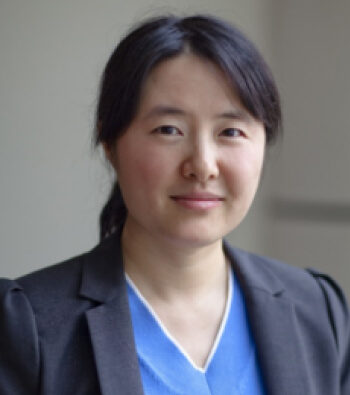
Jing Cao
Jing Cao, Associate Professor of Economics in the School of Economics and Management at Tsinghua University, Deputy Director of Institute of Energy, Environment, Economy at Tsinghua University (Tsinghua 3E Institute), and Deputy Director of Hang Lung Center for Real Estate at Tsinghua University. She was awarded the 2014 Excellent Youth NSFC funding on “Environmental Economics and Policy” in China. Her research focuses on Environmental Economics, Energy Economics, and Climate Change Policy Modelling Analysis. She has published papers in Management Sciences, Journal of Public Economics, Journal of the Association of Environmental and Resource Economists, and Energy Economics.
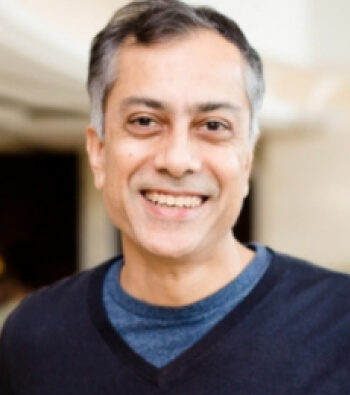
E Somanathan
E. Somanathan is Professor in the Economics and Planning Unit of the Indian Statistical Institute in Delhi, and Head of the Centre for research on the Economics of Climate, Food, Energy and Environment (CECFEE). His research is in the economics of environment and development. He received his PhD from Harvard University and has taught at Emory University, the University of Michigan, and Princeton University. He has been Executive Director of SANDEE (South Asian Network for Development and Environmental Economics), a Coordinating Lead Author for the Fifth Assessment Report of the IPCC, and is a Co-Editor of Environment and Development Economics.
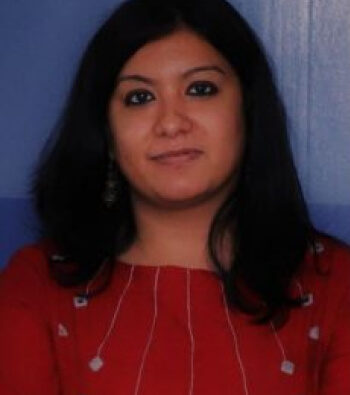
Prachi Singh
Prachi Singh is a High Meadows Post-Doctoral Research Fellow at Environmental Defense Fund. Prior to this, she was a Visiting Assistant Professor at Ashoka University and an Associate Fellow at Brookings India. She graduated from Indian Statistical Institute, Delhi in 2020. She conducts research on health impacts of air pollution causing events like wildfires and crop burning. Her efforts are directed towards informing the policy makers and local community members about the environmental and health costs of pollution enhancing activities. She also focuses on the impact of climate change on deforestation and transition to clean cooking fuels in India.
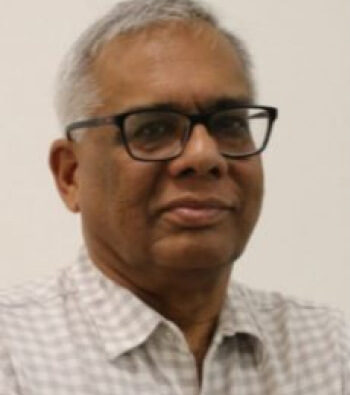
Bhaskar Dutta
Bhaskar Dutta is Professor of Economics at Ashoka University. His research interests include Cooperative Game Theory, Mechanism Design, Formation of Groups and Networks, Social Choice Theory and Development Economics. He has been Professor of Economics at the University of Warwick since 2000. He has had a long association with the Indian Statistical Institute, where he taught during 1979 -2002. He has also been a Visiting Professor in several universities including the California Institute of Technology, Universitat Autonoma de Barcelona, Universite Cergy-Pointoise, Paris, University of Graz. He was winner of the Mahalanobis Memorial Award of the Indian Econometric Society in 1990. He is President of the Society for Social Choice and Welfare (2014-16). He is also a Fellow of the Econometric Society, and the Society for Advancement of Economic Theory. He has been Chair, Standing Committee for India and South Asia as well as a member of the Council of the Econometric Society. He is currently a member of the Council of the Game Theory Society. He has also served as consultant for the World Bank, UNDP, ILO and ADB. Prof. Dutta has published extensively in leading journals, applying game-theoretic tools in the areas of mechanism design, cooperative game theory, the economic theory of social networks, and social choice theory. He is a Managing Editor of Social Choice and Welfare, and Advisory Editor of Games and Economic Behavior. He has also edited several books. Prof. Dutta did his Bachelor’s degree from the University of Calcutta, and his Master’s and Ph.D. in Economics from the University of Delhi.
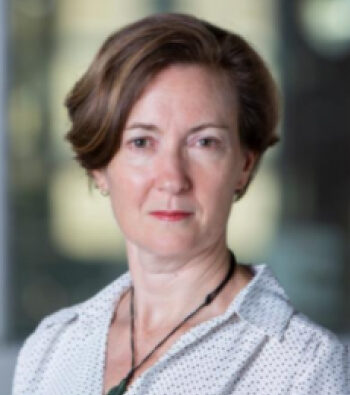
Suzi Kerr
Suzi Kerr is a Senior Vice President and the Chief Economist at the Environmental Defense Fund. She was, until May 2019, a Senior Fellow, and from 1998 – 2009 Founding Director, at Motu Research in New Zealand. She graduated from Harvard University in 1995 with a PhD in Economics. She has also worked at the University of Maryland at College Park, Resources for the Future (USA), and the Joint Center for the Science and Policy of Global Change at MIT. She was a Visiting Professor at Stanford University for the 2009/10 year, and at the University of the Andes in Bogotá, Colombia in the first half of 2014. In 2018, she was President of the Australasian Agricultural and Resource Economics Society. Her research work focuses on domestic and international climate-change mitigation policy with special emphasis on emissions pricing and natural climate solutions. She is the leader of the international ‘Climate Action Teams’ initiative. She is a member of the Advisory Boards for the Climate Econometrics group at Oxford and the International Emissions Trading Association ‘Markets for Natural Climate Solutions’ initiative.

Gaël Giraud
Gaël Giraud is the Founding Director of the Georgetown Environmental Justice Program and Professor at the McCourt School of Public Policy at Georgetown University. He is also an Extraordinary Professor at Stellenbosch University in South Africa. Until 2019, he was Chief Economist of the French Development Bank. He was also the Founding Director of the “Energy and Prosperity” program at ENS, Ecole Polytechnique, and ENSAE (Ecole Nationale de la Statistique et de l’Administration Economique). In 2009, he was awarded as the Best Young French Economist by Le Monde. His publications include 4 books, 30 research papers in mathematical economics, and more than 100 Op Eds in French, Italian, Spanish, and English journals.
Speaker profiles- day 2
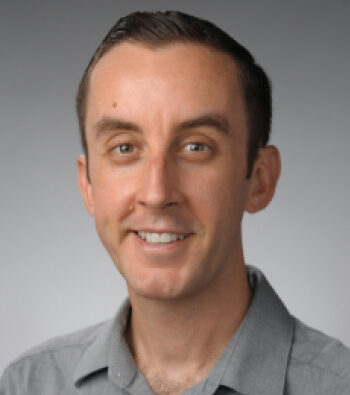
Timur W Hammond
Timur Hammond is an Assistant Professor in the Department of Geography and the Environment at Syracuse University. Trained as a cultural and urban geographer, his research and teaching explore how people create meaningful worlds by encountering and transforming urban environments. His current book project, Building Islam: Stories and Monuments in a Changing Istanbul, develops this project through a geo-history of the neighbourhood of Eyüp, home to one of Istanbul’s most important Muslim shrines. Other recent articles have examined the geographies of commemoration following Turkey’s July 2016 coup attempt and critically assessed the value of a ‘regional’ frame for understanding heritage in the Middle East. He also writes a biweekly newsletter on Substack called ‘stories so far.’
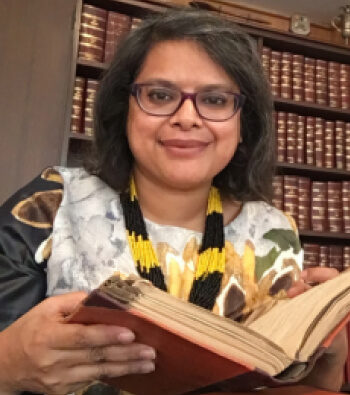
Romita Ray
Romita Ray is associate professor of art history at Syracuse University in the United States. She received her M.A., M.Phil, and Ph.D degrees in art history from Yale University and her B.A. degree in art history from Smith College. Ray is the author of Under the Banyan Tree: Relocating the Picturesque in British India (2013) and guest curator of the British India section of the 2007 exhibition Between Worlds: Voyagers to Britain 1700-1850, organised by Dr. Jocelyn Hackforth-Jones at the National Portrait Gallery in London. She has published widely on the art and architecture of the British empire in India, her area of specialisation, as well as on Indian cinema. Her research interests lie at the intersection of landscape studies, natural history, animal studies, and environmental humanities. Ray is currently working on a book manuscript about the visual cultures of tea in colonial and modern India. She is also co-editing, with Dr. Hackforth-Jones, Empire and Cultural Change: Visual Arts, Film, and Architecture, a four-volume book project for Routledge.
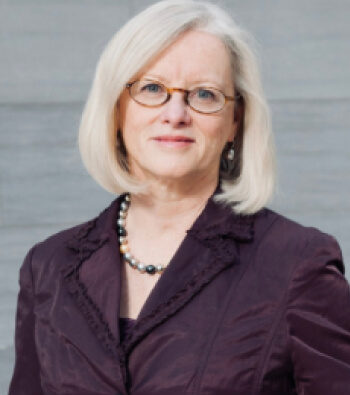
Therese O’Malley
Therese O’Malley is a scholar of the history of landscape architecture, focusing on the 18th to 20th centuries and the transatlantic world exchange of plants and ideas. She received doctoral, masters and bachelor’s degrees in art history from the University of Pennsylvania. O’Malley retired in September 2021 as Associate Dean at the Center for Advanced Study in the Visual Arts at the National Gallery of Art in Washington, D.C., which she joined in 1987. There she oversaw initially the fellowship program and for almost 30 years, the programs of publications and scholarly meetings. Her many publications include Modernism and Landscape Architecture, 1890–1940, co-edited with Joachim Wolschke Buhlmann (2015), and The Art of Natural History, co edited with Amy Meyers (2008). She was the guest curator and author for the exhibition Glasshouses, Architecture of Light and Air (New York Botanical Gardens, 2005), and contributor to the exhibition Unpacking the Archives: Perspectives on Frank Lloyd Wright, (MOMA, 2017) and its catalogue. Her encyclopaedic Keywords in American Landscape Design (2010)—an authoritative reference work with contributions by Anne Helmreich and Elizabeth Kryder-Reid —has been expanded under her direction as a digital database project, History of Early American Landscape Design (heald.nga.gov). In addition to holding guest professorships at Penn, Harvard, Princeton and Temple universities, she has served on several boards and advisory committees including at Dumbarton Oaks, Harvard, the Mount Vernon Place Conservancy, Baltimore, Maryland, and The New York Botanical Garden’s Mertz Botanical Library and Mellon Humanities Institute. Therese O’Malley was the two-term chair of the Association of Research Institutes in Art History; and vice president and president of the Society of Architectural Historians (2000-2006), during which time she helped found the SAH Landscape History Chapter (2004). In 2016, she was made a fellow of the SAH. O’Malley is a founding board member of the Foundation for Landscape Studies. Since 2010, she has been an advisor to the United States Ambassadors Fund for Cultural Property. With Dr. Amy Meyers, she is engaged in a long-term research and exhibition project on the naturalist/artist/explorer William Bartram, (1739-1823).
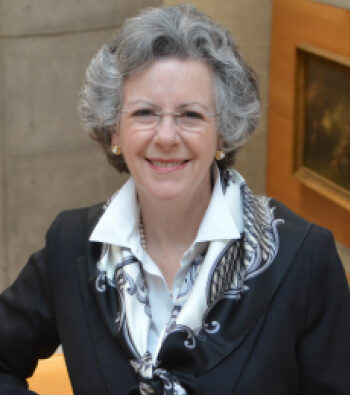
Amy Meyers
Amy Meyers (Yale Ph.D., American Studies, 1985) served as Director of the Yale Center for British Art from 2002 until her retirement in 2019. During her tenure at Yale, she also served as CEO of the Paul Mellon Centre for Studies in British Art in London. Prior to her Yale appointment, Meyers held positions at the Center for Advanced Study in the Visual Arts at the National Gallery of Art, Washington, D.C; and The Huntington Library, Museum, and Botanical Gardens, where she served as Curator of American Art from 1988 through 2002. Meyers also has taught at the California Institute of Technology, the University of Michigan, and Yale. For her contributions to the history of art and architecture, she has received the Virginia Steele Scott Foundation Medal (2002); an honorary doctorate from Ursinus College (2010); the Benjamin West Medal (American Associates of the Royal Academy, 2012), and The Soane Honor (Sir John Soane’s Museum Foundation, 2017). During the academic year of 2020/21 she served as the inaugural Luce Foundation Future of Truth Fellow at the University of Connecticut Humanities Institute. Meyers has written extensively on the visual and material culture of natural history in the transatlantic world, serving as editor of Knowing Nature: Art and Science in Philadelphia,1740 to 1840 (2011); Ways of Making and Knowing: The Material Culture of Empirical Knowledge, with Harold Cook and Pamela Smith (2011); The Art of Natural History: Illustrated Treatises and Botanical Paintings, 1400-1850, with Therese O’Malley (2008); Art and Science in America: Issues of Representation (1998); and Empire’s Nature: Mark Catesby’s New World Vision, with Margaret Pritchard (1998). With Dr. Therese O’Malley, she currently is organising a research project and exhibition on the artist-naturalist, William Bartram, and the emergence of an environmental conception of the natural world in colonial and early republican America.
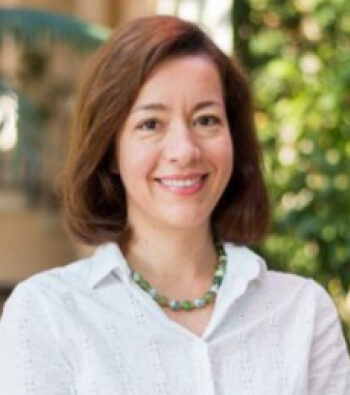
Yota Batsaki
Yota Batsaki is the executive director of Dumbarton Oaks, a Harvard University research institute, museum, and garden located in Washington, DC. At Dumbarton Oaks, she also leads the Plant Humanities Initiative. Funded by the Andrew W. Mellon Foundation, the initiative comprises a digital site, the Plant Humanities Lab, and academic programming to advance the field of plant humanities. Batsaki holds a PhD in comparative literature from Harvard University. Her current research focuses on contemporary artists’ engagement with plants to address legacies of violence, trauma, and resilience.
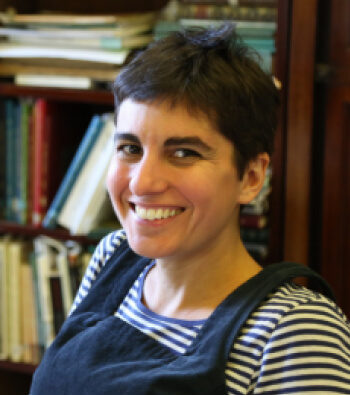
Isabelle Charmantier
Dr Isabelle Charmantier received a PhD in history of science in 2008. After a postdoctoral project on Carl Linnaeus’ manuscripts, she retrained as an archivist, and worked for the Linnean Society cataloguing these manuscripts. After a spell as Collections Manager for the Freshwater Biological Association, she rejoined the Linnean Society, where she is now Head of Collections.
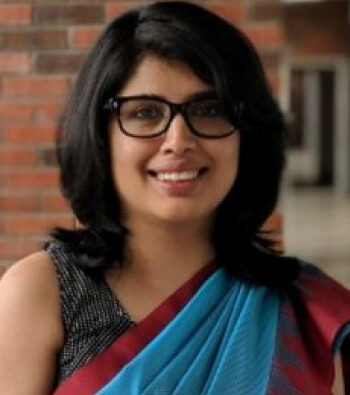
Sumana Roy
Sumana Roy is Associate Professor of English and Creative Writing at Ashoka University. She is the author of How I Became a Tree, a work of nonfiction, Missing: A Novel, Out of Syllabus: Poems, and My Mother’s Lover and Other Stories, a collection of short stories.
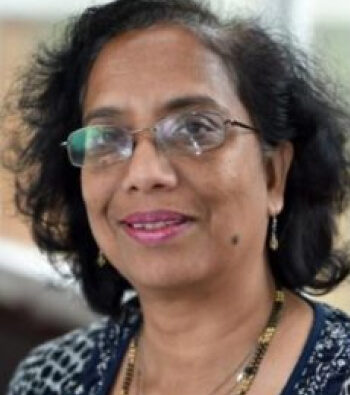
Vinita Damodaran
Vinita Damodaran is Professor of South Asian History (History) and Professor of South Asian History (International Development) at the School of Media, Arts and Humanities, University of Sussex. She is also the director of the Centre for World Environmental History at Sussex. Professor Damodaran is a historian of modern India, interested in sustainable development dialogues in the global South. Her work ranges from the social and political history of Bihar to the environmental history of South Asia, including using historical records to understand climate change in the Indian Ocean World. Her publications include; Broken Promises, Indian Nationalism and the Congress Party in Bihar (1992), Nature and the Orient, Essays on the Environmental History of South and South-East Asia(1998), Post Colonial India, History Politics and Culture (2000), British empire and the natural world: environmental encounters in South Asia, (2010), East India Company and the Natural world (2014) and more recently Climate change and the Humanities (2017), Geography in Britain after the second World War (2019), Commonwealth Forestry and Environmental History, Empire, Forests and Colonial environments in Africa, the Caribbean, South Asia and New Zealand (2020). She is also the author of several articles in established journals. She is particularly interested in questions of environmental change, identity and resistance in Eastern India. An experienced researcher and teacher, she has an M.Phil from JNU and a PhD from Cambridge. Dr Damodaran has had several research grants for her work from the ESRC, the Leverhulme Trust, the British Academy and the AHRC. She is currently leading an AHRC network project on the botanical and meteorological history of the Indian Ocean and is working on two projects one with the McGill university and the second with Noragric.
